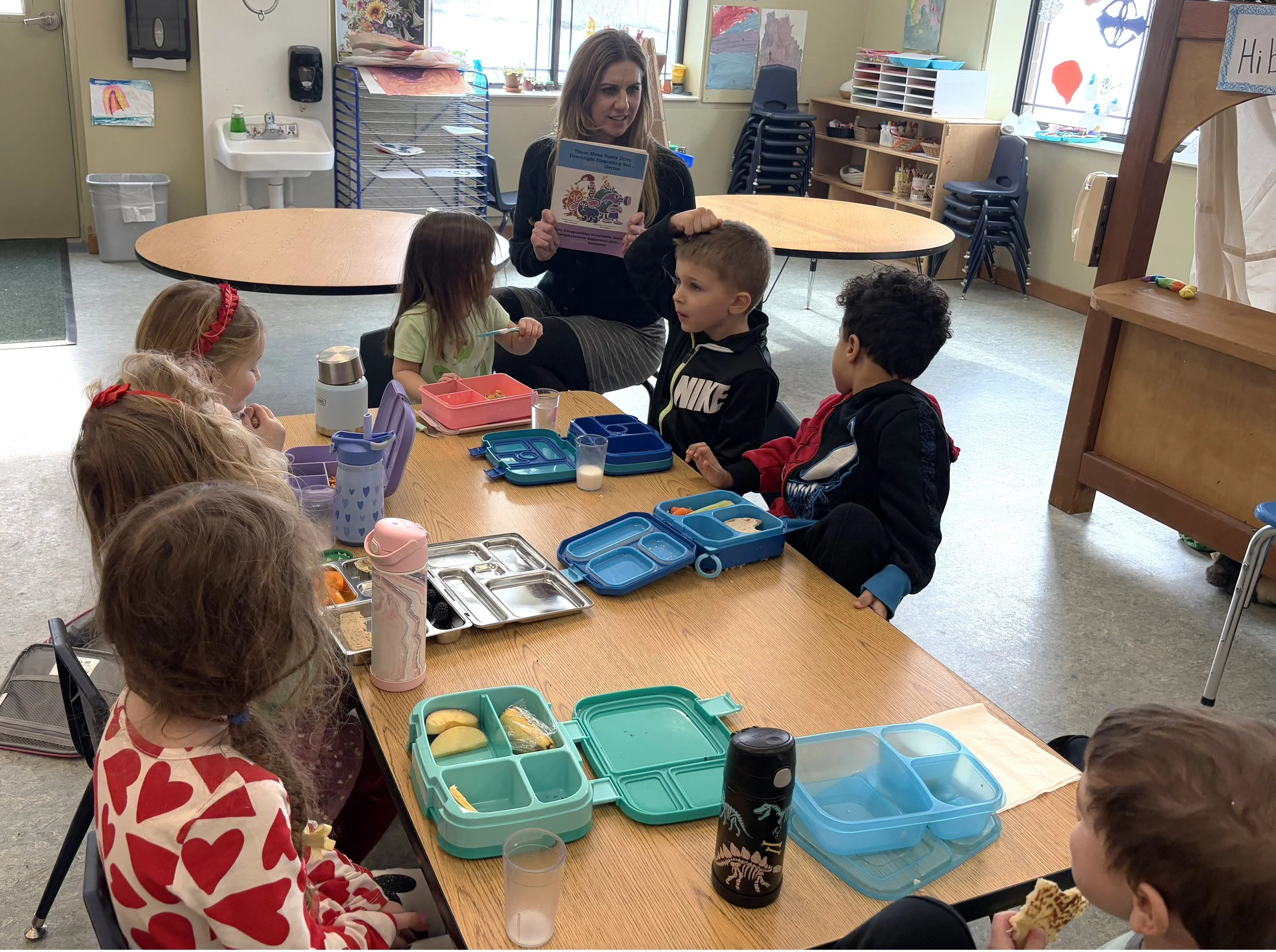Why Repeated Reading Matters For Preschoolers
“Will you read us a story?” Every day while eating their lunch, the children ask this same question.
“Sure!” I respond. “In fact, I just switched out the books and have some new ones in here!” I head to the bookshelf in search of a new book that I haven’t read to them before. But before I get there, I always hear, “Can you read the germ book?” It doesn’t matter that I’ve already read it twice today in class, or that I read it last lunch period…and the one before…and the one before that. It’s a fan favorite and continues to be year after year, even though we get new groups of students who have different interests.
Though recently it’s been “the germ book” (actually titled Those Mean Nasty Dirty Downright Disgusting but…Invisible Germs), it's not ALWAYS this book. When it isn’t that one, then it’s another book that the children request over and over, never tiring of hearing the same story. I do understand; I also enjoy re-reading a beloved book more than once. For example, I have yet to tire of reading the Harry Potter series even though I have read them to myself and to my own children numerous times. However, I’ve been a preschool teacher for over 20 years and have been reading this “germ book” to my students for…over 20 years. Over and over again I agree to their request because I know how beneficial and enjoyable hearing the same story multiple times is, especially for preschool-aged children.
We all know repeated reading is helpful when learning new information, no matter the reader’s age or the topic. However, as we get older, we are better able to understand new ideas or concepts without as much repetition. For preschool-aged children, who are still building their vocabulary and developing their language skills, repeated readings are extremely helpful and even necessary.
Each time they hear a book read aloud, children recognize new vocabulary and commit it to memory. They get a better understanding of what a word means and how and when to use it when hearing it multiple times. Children better grasp sentence structure, pronunciation, and intonation or prosody with repeated readings.
In addition to cognitive development, repeated readings are enjoyable. Listening to a well-liked story offers a sense of comfort and predictability. It helps support children’s attention spans and builds anticipation, thus promoting children’s deeper involvement - especially if the reader is engaging and entertaining with their delivery, as teachers tend to be.
In addition to these specific benefits of repeated readings, children who are read to have a higher academic success rate in school. In fact, it is perhaps one of the biggest predictors of later school success. Therefore, despite my own desire to take a break from reading a story I could blindly recite in full from memory, or to fib and tell them I lost the book, I will continue to grant my students’ requests when they ask me to read them whichever book is currently captivating them that week…or month.


